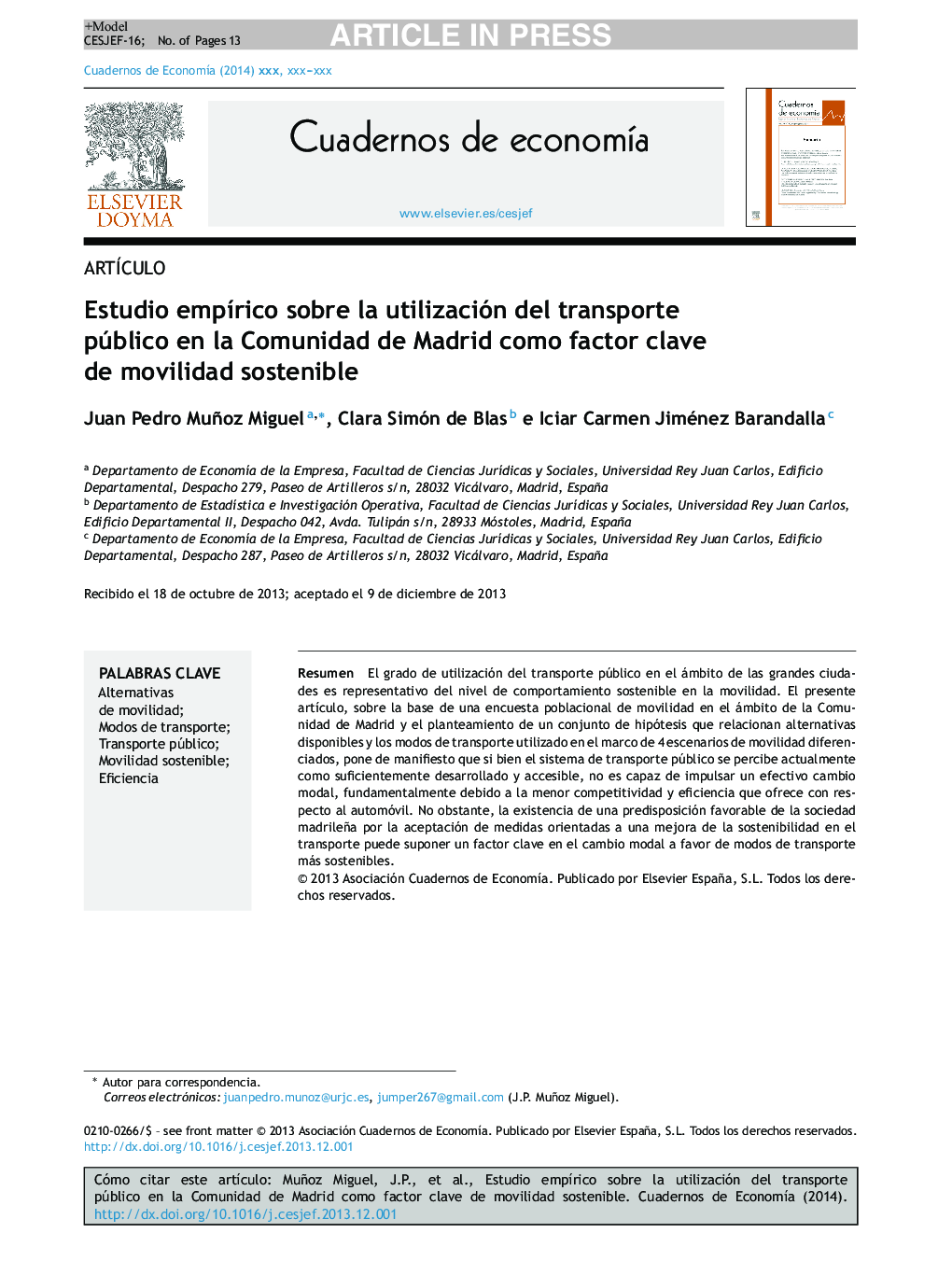| Article ID | Journal | Published Year | Pages | File Type |
|---|---|---|---|---|
| 7342982 | Cuadernos de Economía | 2014 | 13 Pages |
Abstract
The level of public transport use in the area of large cities is representative of the degree of sustainable mobility behavior. This article, based on a population survey of mobility in the Community of Madrid are and the approach of a set of hypotheses combining alternatives and modes of transportation in the framework of four different mobility scenarios, shows that, although the public transport system is currently perceived as sufficiently developed and accessible, is not capable of promoting an effective modal shift, mainly due to lower competitiveness and efficiency offered regarding the car. However, the existence of a favorable predisposition of Madrid society to accept measures aimed at improving sustainability in transportation can be a key factor in the modal shift in favor of more sustainable modes of transport.
Related Topics
Social Sciences and Humanities
Economics, Econometrics and Finance
Economics and Econometrics
Authors
Juan Pedro Muñoz Miguel, Clara Simón de Blas, Iciar Carmen Jiménez Barandalla,
